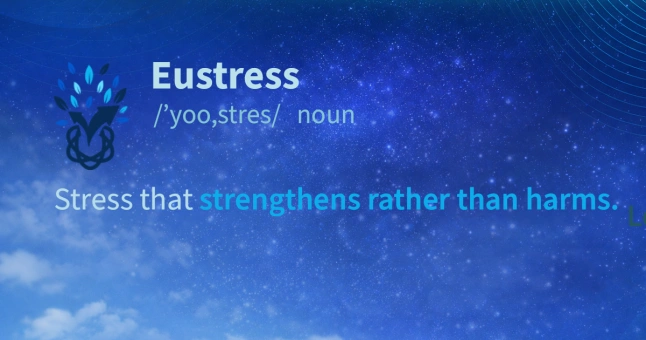Definition
Eustress (noun): A type of stress that is positive and beneficial, as opposed to negative stress that is harmful and debilitating. Eustress can help individuals perform at their best and can be energizing, challenging, and rewarding. It is often accompanied by feelings of excitement, motivation, and focus. Examples of eustress might include preparing for an important exam, training for a marathon, or working on a challenging project at work.
The Origins and Impact of Eustress
The term eustress combines the Greek prefix eu, meaning "good" or "well," with "stress." This concept was introduced by the renowned endocrinologist Hans Selye, who sought to differentiate between the positive and negative effects of stress. While distress can lead to anxiety, fatigue, and burnout, eustress has the opposite effect, inspiring individuals to push through challenges with enthusiasm and determination.
The Psychological and Physiological Effects of Eustress
Eustress activates the body's stress response in a way that is both motivating and beneficial. Physiological changes, such as increased heart rate and heightened focus, prepare the body and mind to tackle tasks effectively. Unlike distress, which can overwhelm and debilitate, eustress fosters resilience and a sense of accomplishment.
Characteristics of Eustress
- It arises in situations perceived as challenging but manageable.
- It is accompanied by feelings of excitement, focus, and motivation.
- It encourages growth, learning, and achievement.
Examples of Eustress in Daily Life
Eustress can manifest in various aspects of life, including:
- Academics: Preparing for an important exam can be a eustressed experience, where the challenge drives focus and performance.
- Fitness Goals: Training for a marathon offers a physical and mental challenge that is both invigorating and rewarding.
- Professional Projects: Taking on a complex project at work that aligns with career goals often provides a sense of purpose and excitement.
Balancing Eustress and Distress
While eustress is beneficial, maintaining balance is crucial. When challenges become too overwhelming or resources are insufficient, eustress can shift into distress. Recognizing personal limits, managing time effectively, and seeking support when needed can help ensure that stress remains positive and constructive.
Conclusion
Eustress plays a vital role in personal and professional growth. By embracing eustressful situations and viewing challenges as opportunities for growth, individuals can harness the positive power of stress to achieve their best outcomes. Whether pursuing a challenging goal or navigating a complex task, eustress reminds us that not all stress is bad—it can be a driving force for success and fulfillment.
